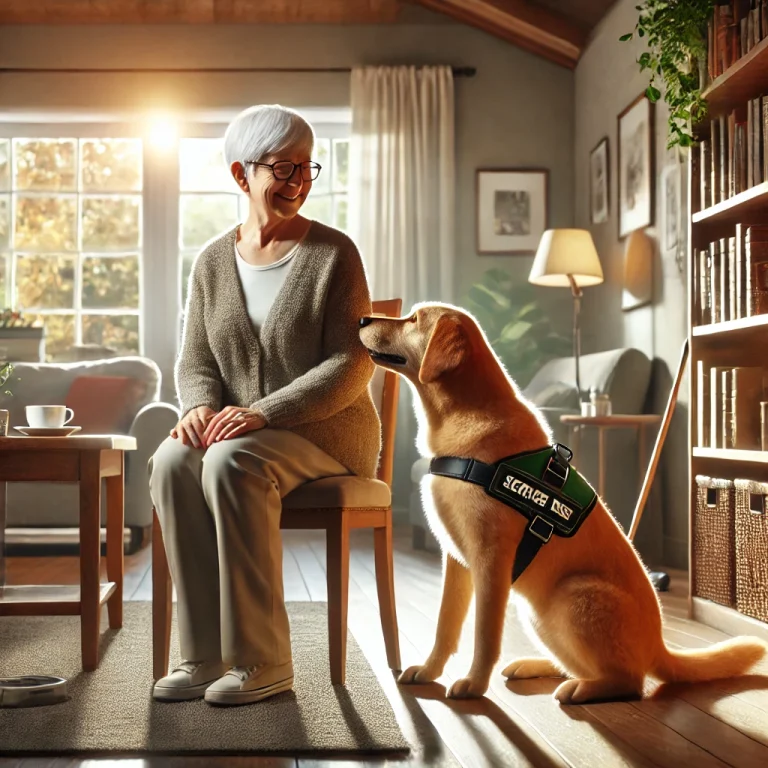Introduction: A Vital Presence in Recovery
The presence of service dogs during hospital stays is profoundly beneficial, offering essential support to their handlers at a time when it’s needed most.
Unwavering Support for Handlers
Service dogs provide more than assistance; they offer unwavering support to their handlers in hospital environments. This includes emotional comfort, physical aid, and a sense of normalcy during challenging times.
Emotional Comfort in Tough Times
The emotional comfort provided by service dogs is immeasurable:
- Reducing stress and anxiety in unfamiliar hospital settings.
- Offering a sense of companionship and reducing feelings of isolation.
- Easing the emotional burden of hospitalization with their familiar presence.
Physical Assistance for Independent Living
Service dogs help maintain a level of independence:
- Assisting with tasks like retrieving items, summoning help, and navigating hospital environments.
- Ensuring handlers’ needs are met, even in a hospital setting.
Tailored Training for Hospital Environments
These dogs are specifically trained to adapt to hospital environments, understanding the unique needs of their handlers in such settings.
Health and Safety Adherence
In hospitals, service dogs adhere to stringent health and safety protocols, ensuring they’re a safe, clean presence in patient care areas.
Enhancing Recovery and Well-being
The presence of a service dog can positively impact the recovery process:
- Promoting a sense of well-being and comfort.
- Encouraging patient mobility and engagement in their recovery journey.
- Offering a consistent presence of care and attention.
Legal Rights and Accessibility
Under the ADA, service dogs are permitted in most hospital areas, ensuring handlers have continuous support. Hospitals work to accommodate these essential companions while balancing health safety in specific zones like sterile areas.
Conclusion: A Partnership in Healing
Service dogs in hospital stays play a crucial role in supporting their handlers, providing not just physical assistance but also emotional stability and comfort. They’re more than companions; they’re an integral part of their handler’s care and recovery. For more insights into the benefits of service dogs in hospital environments, visit ServicePupSolutions.com.
For assistance with self-training a Service Dog, Click Here






